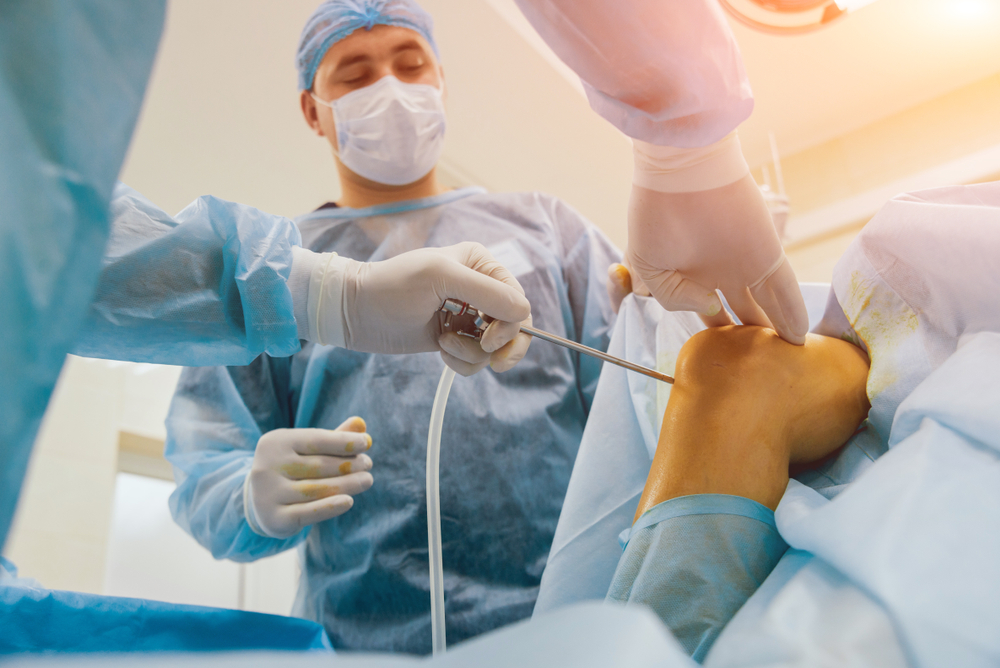Mark Kopec Now
Orthopedic Surgeon
Medical Malpractice with the Baltimore Orthopedic Surgeon Lawyer
What is an Orthopedic Surgeon?
Orthopedic surgeons are medical specialists who focus on the diagnosis, treatment, and prevention of injuries and also diseases of the musculoskeletal system. This system generally includes bones, joints, muscles, ligaments, and tendons. Orthopedic surgeons are often involved in surgical procedures to correct fractures, treat joint diseases, and repair injuries. When there are poor outcomes, orthopedic surgeons may be pursued for medical malpractice. If you have been injured, then you may need the Baltimore orthopedic surgeon lawyer.

Education and Training
To become an orthopedic surgeon, a physician must complete several years of education and training. This generally includes:
- Undergraduate Degree: Firstly, a bachelor’s degree, often in a science field such as biology or chemistry.
- Medical School: Afterward, a Doctor of Medicine (MD) or Doctor of Osteopathic Medicine (DO) degree.
- Residency: Lastly, a five-year residency program in orthopedic surgery. This specifically involves hands-on training in diagnosing and treating musculoskeletal conditions.
Licensing and Board Certification
Orthopedic surgeons must be licensed to practice medicine in the state where they work. This generally involves passing a medical licensing exam and meeting other requirements set by the state medical board. In addition, many orthopedic surgeons choose to obtain board certification from the American Board of Orthopedic Surgery (ABOS). This is a voluntary certification process.
Types of Patients and Conditions Treated
Orthopedic surgeons see patients of all ages, from infants to older. They generally treat a wide range of musculoskeletal conditions, including:
- Fractures: Broken bones, including those caused by accidents, sports injuries, or age-related conditions.
- Joint diseases: Arthritis, gout, and other conditions that affect the joints.
- Sports injuries: Injuries that occur during athletic activities, such as sprains, strains, and dislocations.
- Back and neck pain: Conditions that affect the spine, including herniated discs and also spinal stenosis.
- Bone tumors: Benign and malignant tumors that develop in the bones.
- Deformities: Congenital or acquired abnormalities of the musculoskeletal system.
Tests and Procedures
Orthopedic surgeons use a variety of tests and procedures to diagnose and treat musculoskeletal conditions. These generally include:
- Physical examination: A thorough evaluation of the patient’s musculoskeletal system.
- Imaging tests: X-rays, CT scans, MRIs, and ultrasounds to visualize bones, joints, and soft tissues.
- Blood tests: To check for underlying medical conditions that may affect the musculoskeletal system.
- Arthroscopy: A minimally invasive surgical procedure that uses a small camera to view the inside of a joint.
- Open surgery: Surgical procedures that require larger incisions to access the affected area.
Workplace and Medical Providers
Orthopedic surgeons work in a variety of settings, including:
- Hospitals: Both public and private hospitals.
- Private practices: Independent practices or group practices.
- Clinics: Outpatient clinics and specialized clinics.
- Academic institutions: Medical schools and research centers.
They generally work with a team of doctors and other medical professionals, including:
- Nurse practitioners: Assist with patient care and may perform certain procedures.
- Physician assistants: Assist with patient care and may perform certain procedures.
- Physical therapists: Help patients regain strength and mobility.
- Occupational therapists: Help patients with activities of daily living.
- Radiologists: Interpret imaging tests.
- Anesthesiologists: Provide anesthesia for surgical procedures.
Medical Malpractice Claims with the Baltimore Orthopedic Surgeon Lawyer
Medical malpractice claims against orthopedic surgeons can arise from a variety of errors, including:
- Misdiagnosis: Incorrectly diagnosing a musculoskeletal condition.
- Incorrect treatment: Providing inappropriate or ineffective treatment.
- Surgical Errors: Mistakes during surgical procedures, such as leaving foreign objects in the body or damaging nearby structures.
- Medication errors: Prescribing or administering incorrect medications.
- Failure to obtain informed consent: Failing to adequately explain the risks and benefits of a procedure to the patient.
Orthopedic Surgery Subspecialties
Some orthopedic surgeons specialize in treating specific types of musculoskeletal conditions. These subspecialties include:
- Hand Surgery: Focuses on the diagnosis and treatment of hand and wrist injuries and also diseases.
- Foot and ankle surgery: Focuses on the diagnosis and treatment of foot and ankle injuries and also diseases.
- Pediatric orthopedics: Focuses on the diagnosis and treatment of musculoskeletal conditions in children.
- Sports medicine: Focuses on the prevention, diagnosis, and treatment of injuries related to athletic activities.
- Spine surgery: Focuses on the diagnosis and treatment of conditions that affect the spine.
- Trauma surgery: Focuses on the diagnosis and treatment of traumatic injuries to the musculoskeletal system.
Next Step: Call the Baltimore Orthopedic Surgeon Lawyer
If you believe you may have been the victim of orthopedic surgeon medical malpractice, then it is important to consult with an experienced attorney. We can help you understand your legal rights and options.
Visit the Kopec Law Firm free consultation page or video. Then contact the Kopec Law Firm at 800-604-0704 to speak directly with Attorney Mark Kopec. He is a top-rated Baltimore medical malpractice lawyer. The Kopec Law Firm is in Baltimore and pursues cases throughout Maryland and Washington, D.C.





